A Cache of Cheap Blessings
JACKPOTS happen like this: Just when boredom starts to kick in while you're idling through the mall, you spot a book sale. See what I got, scoured from the shelves in one of the stores at Robinson's Cebu. A handful of second-hand gems priced at 10 pesos each---whoa!---here are my first four book acquisitions in 2006: 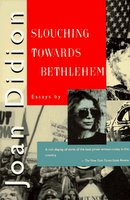 Slouching Towards Bethlehem. Upon its publication in 1968, this book of essays confirmed Joan Didion as one of the most prominent writers on the literary scene. Her unblinking vision and deadpan tone have influenced subsequent generations of reporters and essayists, changing our expectations of style, voice, and the artistic possibilities of nonfiction. "In her portraits of people," The New York Times Book Review wrote, "Didion is not out to expose but to understand, and she shows us actors and millionaires, doomed brides and naïve acid-trippers, left-wing ideologues and snobs of the Hawaiian aristocracy in a way that makes them neither villainous nor glamorous, but alive and botched and often mournfully beautiful....A rare display of some of the best prose written today in this country."
Slouching Towards Bethlehem. Upon its publication in 1968, this book of essays confirmed Joan Didion as one of the most prominent writers on the literary scene. Her unblinking vision and deadpan tone have influenced subsequent generations of reporters and essayists, changing our expectations of style, voice, and the artistic possibilities of nonfiction. "In her portraits of people," The New York Times Book Review wrote, "Didion is not out to expose but to understand, and she shows us actors and millionaires, doomed brides and naïve acid-trippers, left-wing ideologues and snobs of the Hawaiian aristocracy in a way that makes them neither villainous nor glamorous, but alive and botched and often mournfully beautiful....A rare display of some of the best prose written today in this country."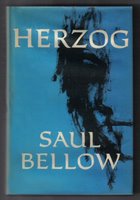 Herzog. Nobel Prize winner Saul Bellow's "Herzog" received the International Literary Prize in 1965; the story of Moses E. Herzog, a confused intellectual suffering from the breakup of his second marriage, the failure of his life and the specter of growing up Jewish in the middle part of the 20th century.
Herzog. Nobel Prize winner Saul Bellow's "Herzog" received the International Literary Prize in 1965; the story of Moses E. Herzog, a confused intellectual suffering from the breakup of his second marriage, the failure of his life and the specter of growing up Jewish in the middle part of the 20th century.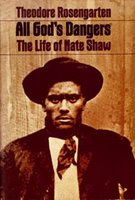 All God's Dangers. This triumphant National Book Award recipient assembled from the 84-year-old sharecropper's oral reminiscences is the plain-spoken story of an "over-average" man who witnessed wrenching changes in the lives of Southern black people – and whose unassuming courage helped bring those changes about. "There are only a few American autobiographies of surpassing greatness....Now there is another one, Nate Shaw's," raves The New York Times. "When, finally, this big book is put down, one feels exhilarated," agrees Studs Terkel. "This is an anthem to human endurance."
All God's Dangers. This triumphant National Book Award recipient assembled from the 84-year-old sharecropper's oral reminiscences is the plain-spoken story of an "over-average" man who witnessed wrenching changes in the lives of Southern black people – and whose unassuming courage helped bring those changes about. "There are only a few American autobiographies of surpassing greatness....Now there is another one, Nate Shaw's," raves The New York Times. "When, finally, this big book is put down, one feels exhilarated," agrees Studs Terkel. "This is an anthem to human endurance."
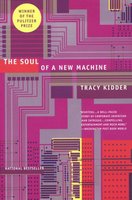 The Soul of a New Machine. Winner of the Pulitzer Prize, and selected by the Modern Library as one of the100 best nonfiction books of the 20th century. Computers have changed since 1981, when Tracy Kidder indelibly recorded the drama, comedy, and excitement of one company's efforts to bring a new microcomputer to market. What has changed little, however, is computer culture: the feverish pace of the high-tech industry, the mystique of programmers, the go-for-broke approach to business that has caused so many computer companies to win big (or go belly up), and the cult of pursuing mind-bending technological innovations. By tracing computer culture to its roots, by exploring the "soul" of the "machine" that has revolutionized the world, Kidder succeeds as no other writer has done in capturing the essential spirit of the computer age.
The Soul of a New Machine. Winner of the Pulitzer Prize, and selected by the Modern Library as one of the100 best nonfiction books of the 20th century. Computers have changed since 1981, when Tracy Kidder indelibly recorded the drama, comedy, and excitement of one company's efforts to bring a new microcomputer to market. What has changed little, however, is computer culture: the feverish pace of the high-tech industry, the mystique of programmers, the go-for-broke approach to business that has caused so many computer companies to win big (or go belly up), and the cult of pursuing mind-bending technological innovations. By tracing computer culture to its roots, by exploring the "soul" of the "machine" that has revolutionized the world, Kidder succeeds as no other writer has done in capturing the essential spirit of the computer age.
 Slouching Towards Bethlehem. Upon its publication in 1968, this book of essays confirmed Joan Didion as one of the most prominent writers on the literary scene. Her unblinking vision and deadpan tone have influenced subsequent generations of reporters and essayists, changing our expectations of style, voice, and the artistic possibilities of nonfiction. "In her portraits of people," The New York Times Book Review wrote, "Didion is not out to expose but to understand, and she shows us actors and millionaires, doomed brides and naïve acid-trippers, left-wing ideologues and snobs of the Hawaiian aristocracy in a way that makes them neither villainous nor glamorous, but alive and botched and often mournfully beautiful....A rare display of some of the best prose written today in this country."
Slouching Towards Bethlehem. Upon its publication in 1968, this book of essays confirmed Joan Didion as one of the most prominent writers on the literary scene. Her unblinking vision and deadpan tone have influenced subsequent generations of reporters and essayists, changing our expectations of style, voice, and the artistic possibilities of nonfiction. "In her portraits of people," The New York Times Book Review wrote, "Didion is not out to expose but to understand, and she shows us actors and millionaires, doomed brides and naïve acid-trippers, left-wing ideologues and snobs of the Hawaiian aristocracy in a way that makes them neither villainous nor glamorous, but alive and botched and often mournfully beautiful....A rare display of some of the best prose written today in this country." Herzog. Nobel Prize winner Saul Bellow's "Herzog" received the International Literary Prize in 1965; the story of Moses E. Herzog, a confused intellectual suffering from the breakup of his second marriage, the failure of his life and the specter of growing up Jewish in the middle part of the 20th century.
Herzog. Nobel Prize winner Saul Bellow's "Herzog" received the International Literary Prize in 1965; the story of Moses E. Herzog, a confused intellectual suffering from the breakup of his second marriage, the failure of his life and the specter of growing up Jewish in the middle part of the 20th century. All God's Dangers. This triumphant National Book Award recipient assembled from the 84-year-old sharecropper's oral reminiscences is the plain-spoken story of an "over-average" man who witnessed wrenching changes in the lives of Southern black people – and whose unassuming courage helped bring those changes about. "There are only a few American autobiographies of surpassing greatness....Now there is another one, Nate Shaw's," raves The New York Times. "When, finally, this big book is put down, one feels exhilarated," agrees Studs Terkel. "This is an anthem to human endurance."
All God's Dangers. This triumphant National Book Award recipient assembled from the 84-year-old sharecropper's oral reminiscences is the plain-spoken story of an "over-average" man who witnessed wrenching changes in the lives of Southern black people – and whose unassuming courage helped bring those changes about. "There are only a few American autobiographies of surpassing greatness....Now there is another one, Nate Shaw's," raves The New York Times. "When, finally, this big book is put down, one feels exhilarated," agrees Studs Terkel. "This is an anthem to human endurance." The Soul of a New Machine. Winner of the Pulitzer Prize, and selected by the Modern Library as one of the100 best nonfiction books of the 20th century. Computers have changed since 1981, when Tracy Kidder indelibly recorded the drama, comedy, and excitement of one company's efforts to bring a new microcomputer to market. What has changed little, however, is computer culture: the feverish pace of the high-tech industry, the mystique of programmers, the go-for-broke approach to business that has caused so many computer companies to win big (or go belly up), and the cult of pursuing mind-bending technological innovations. By tracing computer culture to its roots, by exploring the "soul" of the "machine" that has revolutionized the world, Kidder succeeds as no other writer has done in capturing the essential spirit of the computer age.
The Soul of a New Machine. Winner of the Pulitzer Prize, and selected by the Modern Library as one of the100 best nonfiction books of the 20th century. Computers have changed since 1981, when Tracy Kidder indelibly recorded the drama, comedy, and excitement of one company's efforts to bring a new microcomputer to market. What has changed little, however, is computer culture: the feverish pace of the high-tech industry, the mystique of programmers, the go-for-broke approach to business that has caused so many computer companies to win big (or go belly up), and the cult of pursuing mind-bending technological innovations. By tracing computer culture to its roots, by exploring the "soul" of the "machine" that has revolutionized the world, Kidder succeeds as no other writer has done in capturing the essential spirit of the computer age.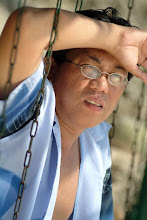








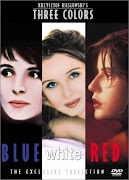















































No comments:
Post a Comment